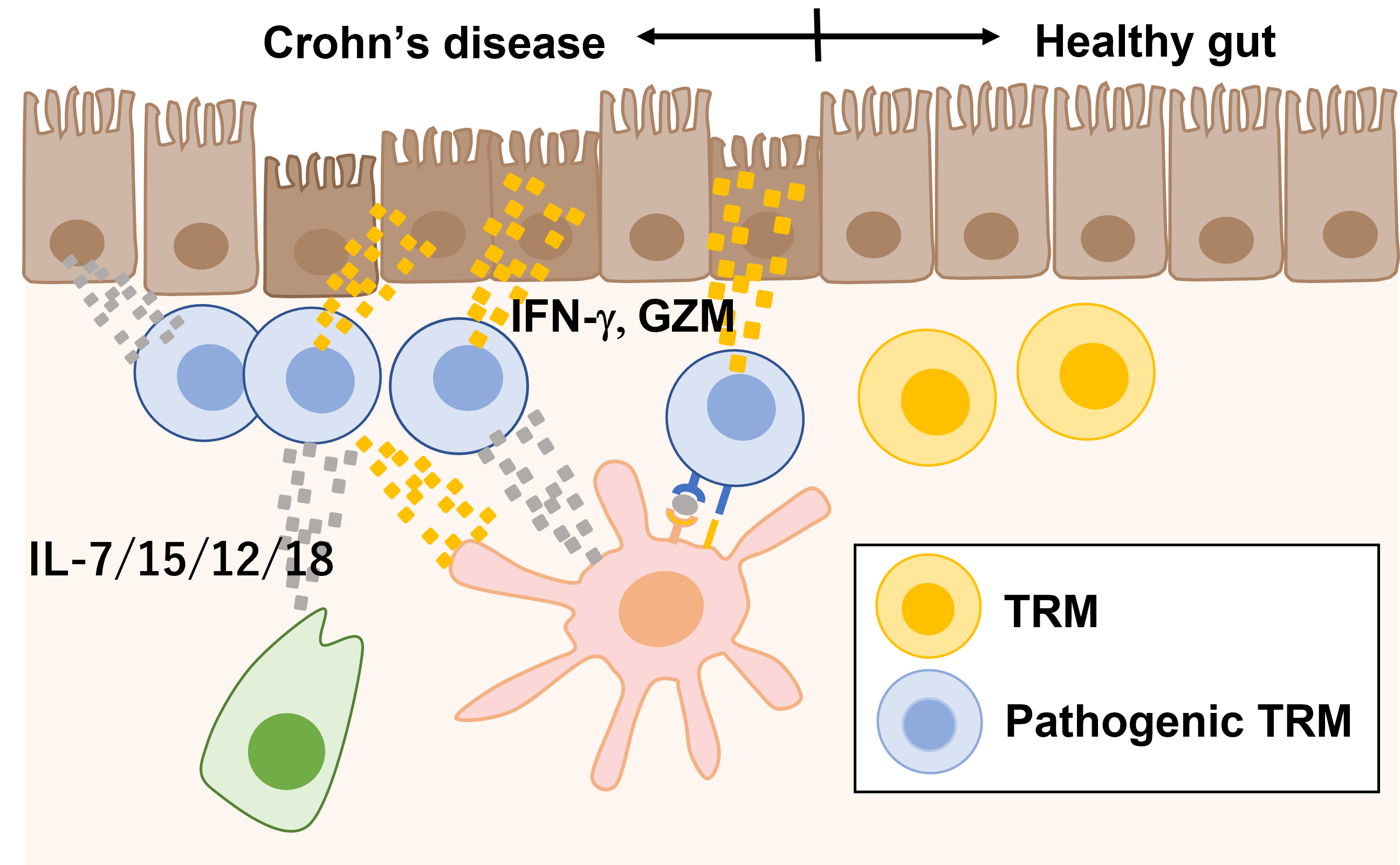News & Topics
Research
2023.01.05
Unique tissue-resident memory CD4+ T cells in Crohn's disease (Takeda G, in PNAS)
PRESS RELEASE
Crohn's disease causes chronic inflammation in the gastrointestinal tract, and its onset is attributed to an excessive immune response of CD4-positive helper T cells.
Mari Murakami (Graduate School of Medicine, Osaka University), Kiyoshi Takeda (Director of IFReC), and the research group identified tissue-resident memory T cells that increase in the intestinal tract of patients with Crohn's disease and exacerbate the condition.

- Contact
-

